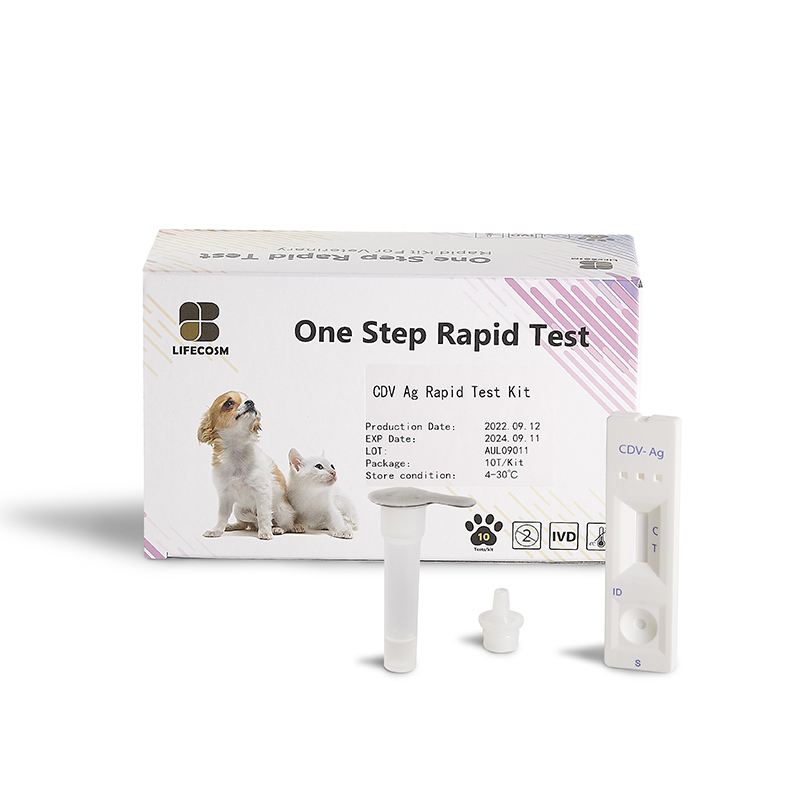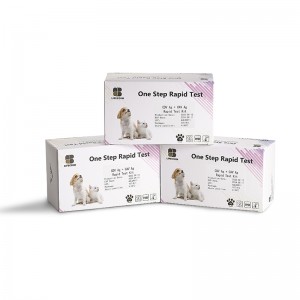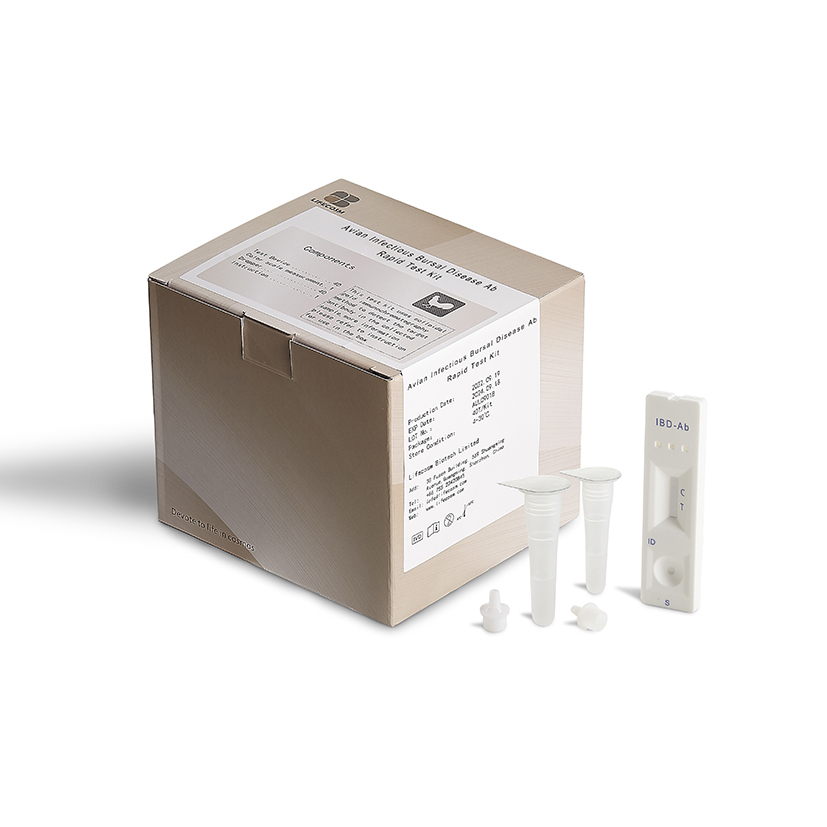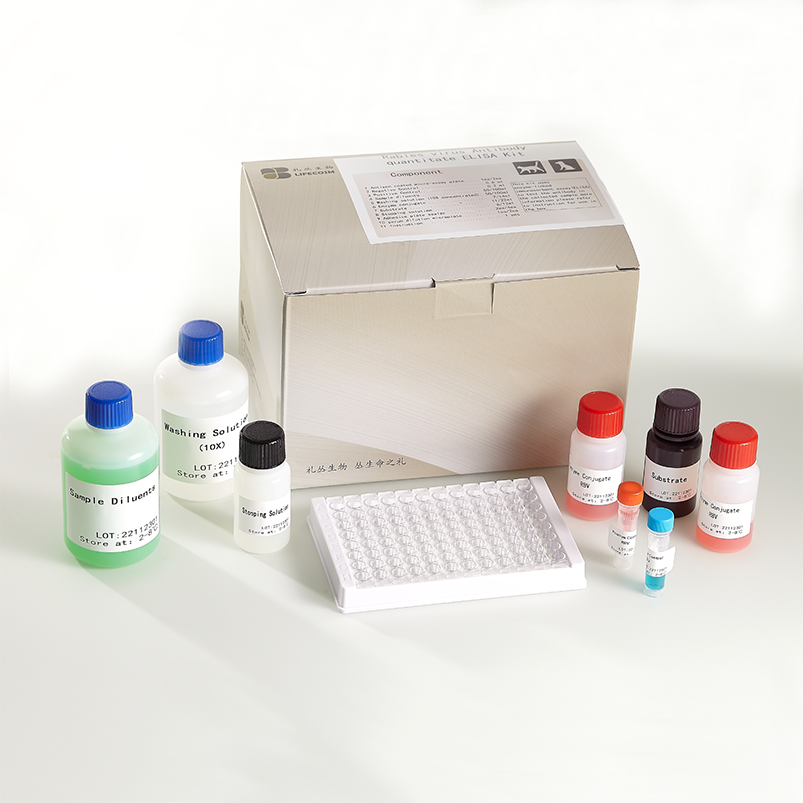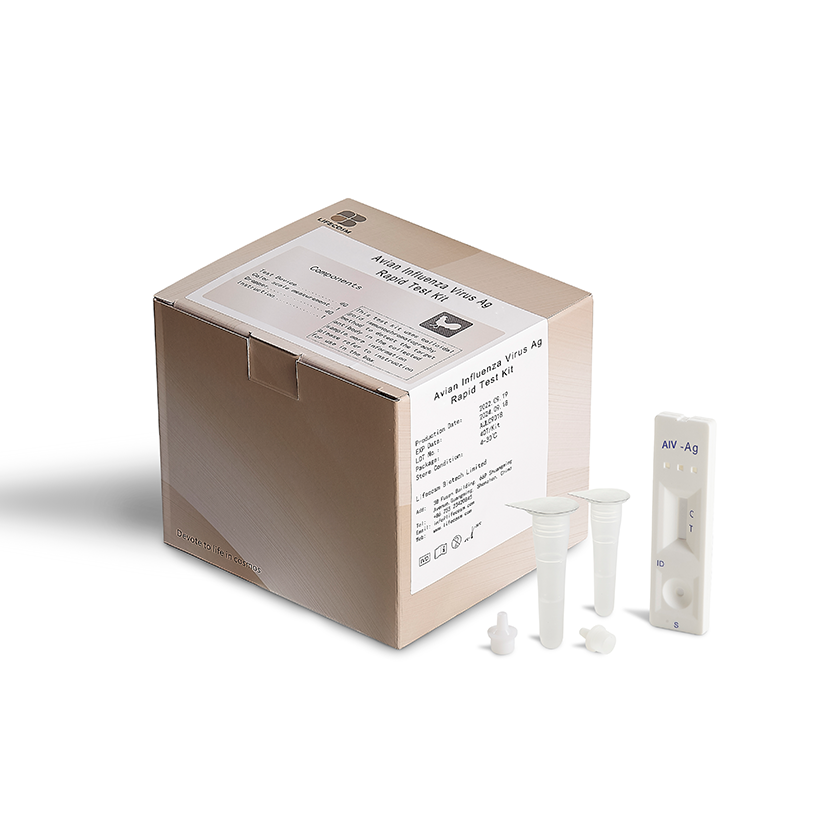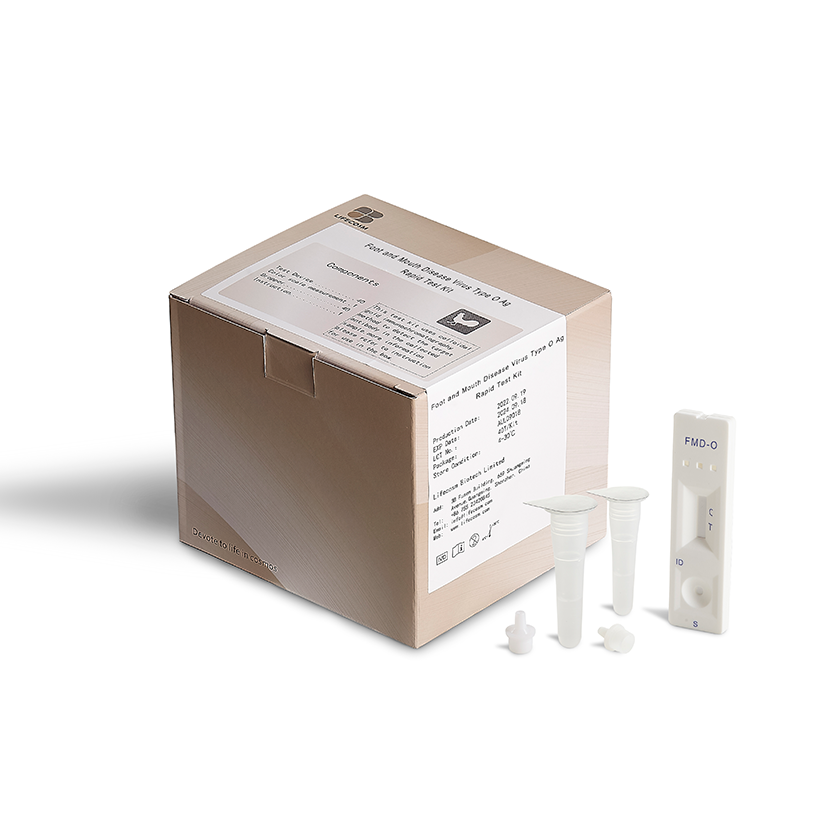
Products
Lifecosm Canine Distemper virus Ag Rapid Test Kit Veterinary medicine
Canine Distemper Virus Ab Test Kit
| Catalog number | RC-CF01 |
| Summary | Detection of Canine Distemper Virus(CDV) antibodies within 15 minutes |
| Principle | One-step immunochromatographic assay |
| Detection Targets | Canine Distemper Virus(CDV) antibodies |
| Sample | Canine Whole Blood, Plasma or Serum |
| Reading time | 10 ~ 15 minutes |
| Sensitivity | 92.0 % vs. Serum Neutralization (SN test) |
| Specificity | 96.0 % vs. Serum Neutralization (SN test) |
| Interpretation | Positive : above SN titer 16, Negative : below SN titer 16 |
| Quantity | 1 box (kit) = 10 devices (Individual packing) |
| Contents | Test kit, Buffer bottle, droppers and swab |
| Storage | Room Temperature (at 2 ~ 30℃) |
| Expiration | 24 months after manufacturing |
| Caution | Use within 10 minutes after openingUse appropriate amount of sample ( 1ul of a loop )Use after 15~30 minutes at RT if they are stored under cold circumstances
Consider the test results as invalid after 15 minutes |
Information
Canine distemper poses a severe threat to dogs, in particular puppies, which are severely exposed to the disease. When infected, their fatality rate reaches 80%. Adult dogs, though rarely, can be infected with the disease. Even cured dogs suffer from long-lasting harmful effects. The breakdown of the nervous system can aggravate the senses of smell, hearing, and sight. Partial or general paralysis can be easily triggered, and complications such as pneumonia can occur. However, canine distemper is not transmitted to human beings.
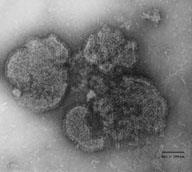
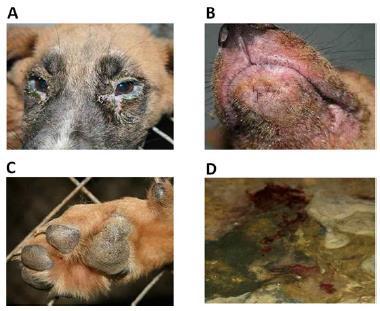
Fig. 1. Canine Distemper virus1)
Fig. 2. The typical clinical signs of CDV infected dogs2): (A) displayed respiratory signs with an ocular discharge from the
eye; (B) exhibited clinical symptoms of full of red rashes in the face; (C) hardened footpad of the infected dogs; (D) Bloody diarrhea on the ground.
Symptoms
Canine distemper is easily transmitted to other animals through viruses. The disease can occur through contact with the discharges of respiratory organs or urine and feces of infected puppies.
There are no specific symptoms of the disease, a main reason for the ignorance or delay of treatment. Common symptoms include a cold with high fever that could develop into bronchitis, pneumonia, gastritis, and enteritis. In early stage, squint, bloodshot eyes, and eye mucus are an indicator of the disease. Weight loss, sneeze, vomiting, and diarrhea are also easily examined. In late stage, viruses infiltrating the nervous system trigger partial or general paralysis and convulsion. Vitality and appetite can be lost. If the symptoms are not severe, the disease can deteriorate with no treatments. Low fever only can occur for two weeks. Treatment is hard after several symptoms including pneumonia and gastritis are shown. Even if the infection symptoms disappear, the nervous system may malfunction several weeks later. The rapid proliferation of viruses causes the formation of keratins on the sole of a foot. The fast examination of puppies suspected of suffering from the disease is recommended according to the various symptoms.
Diagnosis
Puppies which recover from a virus infection are immune from it. However, it is very rare for the puppies to survive after being infected with the virus. Therefore, vaccination is the safest way.
Puppies born of dogs immune against canine distemper have immunity from it, too. The immunity can be obtained from milks of mother dogs during several days after birth, but it is different depending on the amount of antibodies that the mother dogs have. After that, the immunity of puppies decreases rapidly. For the appropriate time for vaccination, you should seek consultation with veterinarians.
|
SN titer† |
Remark |
|
|
Positive titer |
≥1:16 |
SN 1:16, Limited protection against field virus. |
|
Negative titer |
<1:16 |
It suggests an adequate vaccine response. |
Table 1. vaccination3)
† : Serum Neutralization

